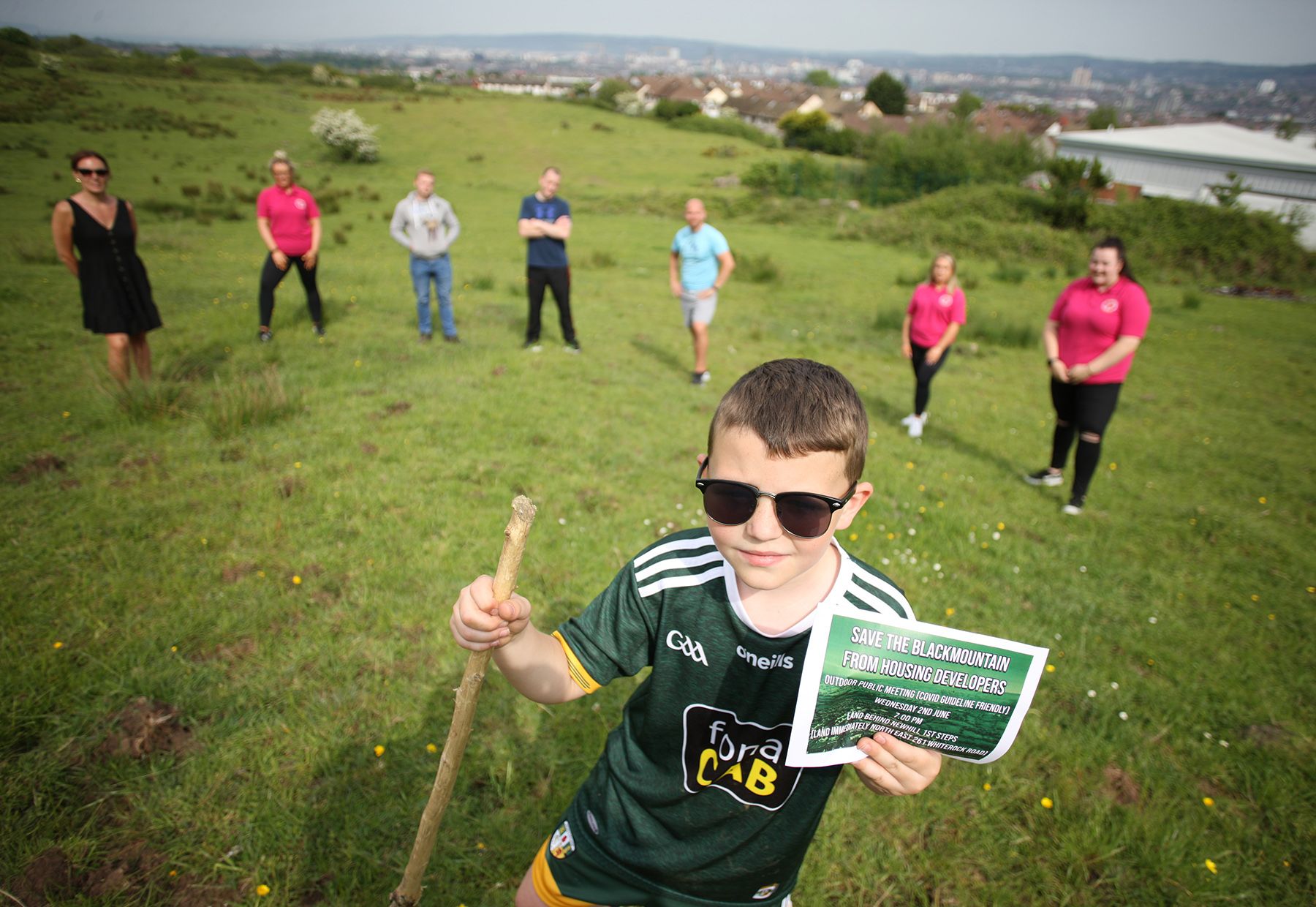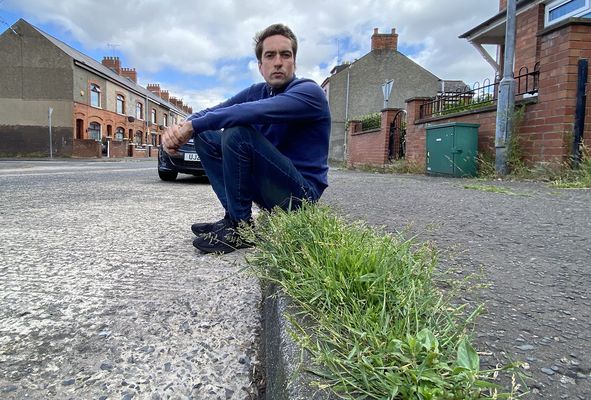A GROUP of residents have called a public meeting to oppose plans to build 28 houses on the Black Mountain.
Radius Housing has outlined plans to build mixed tenure homes in an area known locally as the 'Mountain Loney'.
The Whiterock Road site is currently owned by Belfast City Council, which has zoned the the land for housing. However, the site has been earmarked for environmental regeneration purposes by the local community for over 20 years.
Residents from the Greater Dermott Hill and New Barnsley community have long-campaigned to see the site used and developed as an environmental heritage site, which is hoped to be a staging post for the preservation and regeneration of the Black Mountain.
The residents are requesting that Radius withdraw their plans and Belfast City Council commit to using the site as an access point into the Black Mountain and the Belfast Hills.
On Wednesday they held an outdoor meeting at the site.
One of the organisers of the meeting Niall Enright said: "Local residents and community groups are strongly opposed to the proposed scheme outlined within Radius’ plans, which will effectively destroy a crucial natural recreational amenity with significant environmental and heritage regeneration potential.
"In addition the proposed scheme will have a detrimental impact on the lives of local people causing significant short and long term disruption to the lives of residents, not to mention the devastating impact on local wildlife and biodiversity."
With new homes being built at the former St Thomas' Secondary School, Glenmona, St Gerard’s School sites, residents say the Upper Springfield and Whiterock does not have the infrastructure or community services available to cope with the number of proposed housing developments currently being planned.
As well as opposing the development on environmental grounds, they have raised concerns around traffic congestion, and child safety due to the site's proximity to the childcare facility at Newhill First Steps.
Residents also say the housing scheme would destroy two ancient ‘raths’ or ringfort sites, which run along the north-eastern edge of the site.
The local community recently secured £15,000 to carry out a feasibility study to conceptualise an environment and heritage scheme. However, Radius had sent a letter to residents this week outlining its plans to press ahead with its housing development.
Radius had previously planned to build 29 homes on the site, but said it had reduced the number of proposed homes to 28 following "engagement with community representatives".
A spokesperson for Radius Housing said “Before submitting a planning application for this proposal, Radius engaged with the local community and the stakeholders involved in the feasibility study. Following this engagement we made significant modifications by reducing the site density, changing the site boundary and providing good connectivity to ensure that areas of archaeological interest were protected and that the design does not adversely impact on the communities’ wider aspirations to create pedestrian connections to the Black Mountain and access to green space.
“At Radius we see our developments as playing an importing role in enhancing the built environment and community, and we take care to ensure that proposals for new homes are sympathetic to the local area.
“As a housing provider, part of our role is to develop new homes in areas of housing need, and this area is among the highest for housing stress in West Belfast. The land for the proposed 28 new social and affordable homes is zoned for housing within the Belfast Area Plan, and will play a part in tackling housing need in the area.
“We will continue to engage with the local community, elected representatives and stakeholders throughout the planning process, and we welcome ideas and suggestions that could improve our proposals.”









